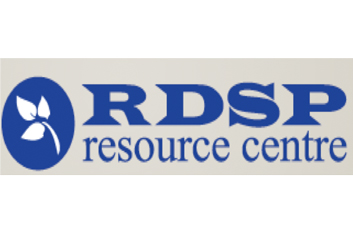A Policy Paper
By Kristi Fairholm Mader, director emeritus of planning, PLAN; and Jack Styan, managing director, RDSP Resource Centre
Just Months after the launch of the registered disability savings plan (RDSP) in 2008, British Columbia’s Public Guardian and Trustee (PGT) took a bold step and opened accounts for all eligible children in its care. As a result, approximately 500 children now have RDSP accounts and are benefiting from the federal government’s Canada Disability Savings Bond program—up to $1,000 in government bonds annually without a personal contribution. We applaud the leadership and initiative toward securing the financial futures of children with little family support who may not benefit from family resources.
Shortly after the RDSP accounts were opened, the PGT approached the Planned Lifetime Advocacy Network (PLAN) with an emerging issue: who would act as account holders of these RDSPs once the youth became adults? While parents may continue to act as account holders of RDSPs once their children reach adulthood, the PGT and other child-welfare authorities lose their authority to act as account holders when the youth turns 19. At that time, only the young adult (the beneficiary) or a legally authorized representative (power of attorney, adult guardian or representative under B.C.’s Representation Agreement Act) may act as the account holder.
While some children in care who have disabilities will be able to manage their finances in adulthood, the majority will continue to require support and assistance.
A simple solution to this issue was not apparent, so representatives from the PGT, Ministry of Children and Families, Community Living B.C. and Ministry of Social Development partnered with PLAN and the RDSP Resource Centre to deepen their understanding of the issues and to explore solutions. Funding for this undertaking was provided by the Law Foundation of B.C. and Human Resources and Skills Development Canada.
PLAN and the RDSP Resource Centre led a research pilot project, in which 13 youth and/or their caregivers and social workers were interviewed to identify: their general awareness of the RDSP; their knowledge on how to manage and maintain their RDSP; and their comfort level in managing their own financial matters. We also used the opportunity to educate foster families, social workers and the young people about the RDSP.
While the youth with whom we met faced a variety of challenges—financial and otherwise—we were able to identify three recurring themes throughout our interviews:
Inadequate preparation for adulthood and transition out of care: When youth in care reach adulthood, they leave the formal system of care and move on to one of three situations: independent living; independent living with some support; or another formal care system. Although formalized, comprehensive policies governing theses transitions do exist, we have identified shortcomings in these policies and in their implementation.
Financial illiteracy among youth: Adults require a basic level of financial literacy to be able to function independently. We recommend appropriate education and support to develop financial management skills, with an understanding that many young people may always require support, either in the short term or over their lifetimes.
Lack of informal relationships: All youth need support and advice as they learn to manage their finances independently. Some require ongoing advice in managing their finances (supported decision-making), while others may always require people to manage their finances. Each of these situations requires the help of unpaid, trustworthy people. The problem? For the vast majority of young people with whom we talked, such people are absent in their lives.
While most of the changes needed to address these issues reside in provincial jurisdiction, some federal changes could also improve the situation. Some of the solutions appear relatively straightforward—e.g., full implementation of transition protocols. Others, however, would require more fundamental shifts—e.g., addressing the issue of isolation among youth with disabilities.
Children in care with disabilities have uncertain futures at best. Utilizing the RDSP to secure their financial futures will provide more options for them later in life. And the ripples of enabling the use of the RDSP—including ending isolation—could have a much more significant impact on their future quality of life.
You can download the entire paper, “RDSP: Implications for Children-in-Care (2011)” at http://rdspresource.ca/(in the Public Policy Works Blog, under “community”) or a http://rdsp.com/ in the “Latest Updates” blog. If you are curious or passionate about the issue of financial security for children in care, we invite you to contact, Kristi (kfmader@plan.ca) or Jack (jack@ rdspresource.ca).
CONTACT US:
PLAN
3665 Kingsway, ste. 260
Vancouver, B.C. V5R 5W2
Telephone: 604-439-9566
RDSP Resource Centre
3665 Kingsway, ste. 345
Vancouver, B.C. V5R 5W2
Telephone: 604-637-6616














